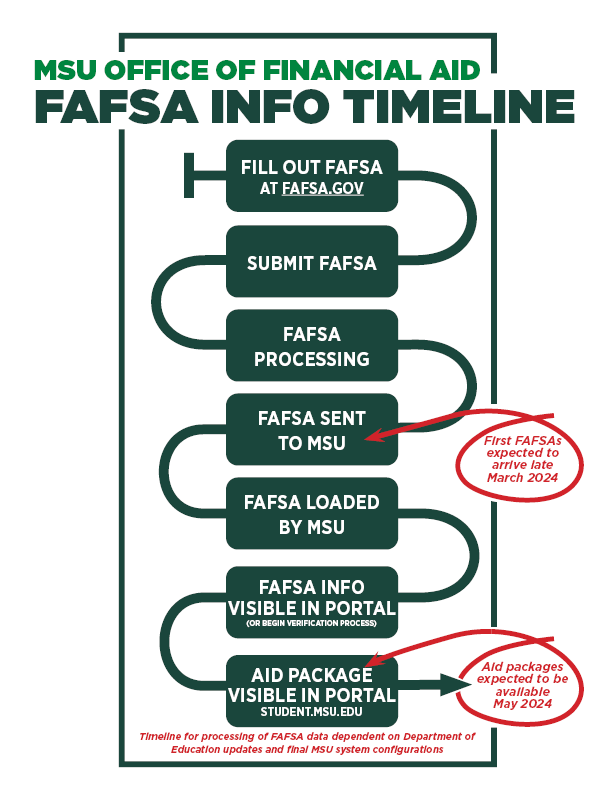2024-25 FAFSA Application Portal Is Now Open at FAFSA.gov
All students with a valid 24-25 FAFSA are now able to view their aid in the student financial aid portal (student.msu.edu). April 28, the Office of Financial Aid began loading FAFSA data into MSU’s system in the order it was received from the U.S. Department of Education. In a normal year, this process would have begun in December 2023.
Due to an unprecedented number of data issues beyond MSU’s control, we may receive changes from the U.S. Department of Education after an award package is generated that result in revisions to award amounts.
